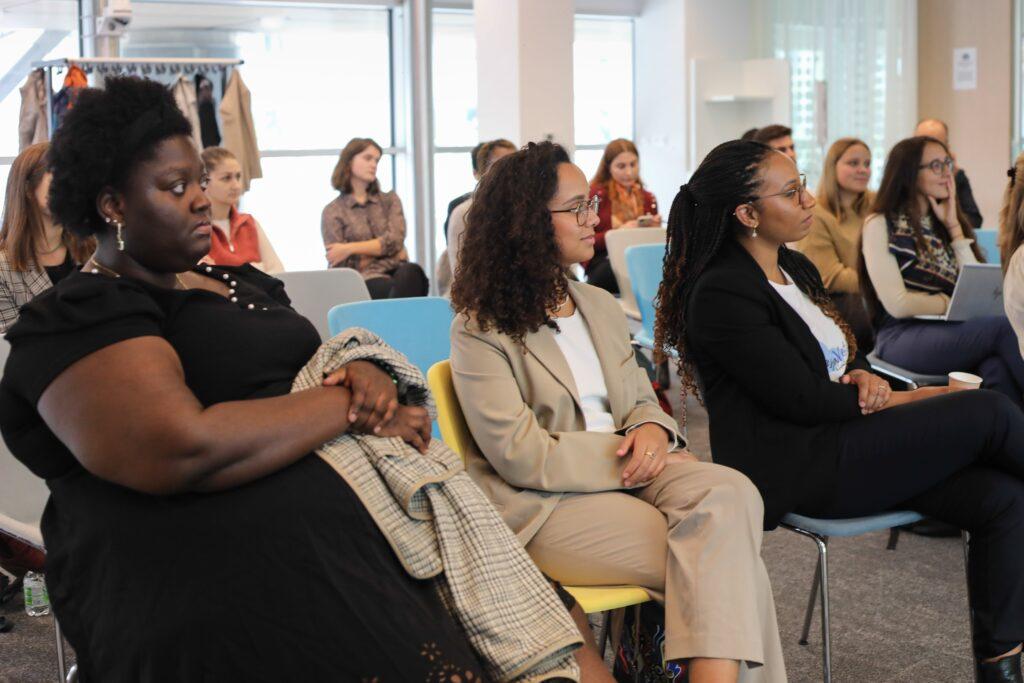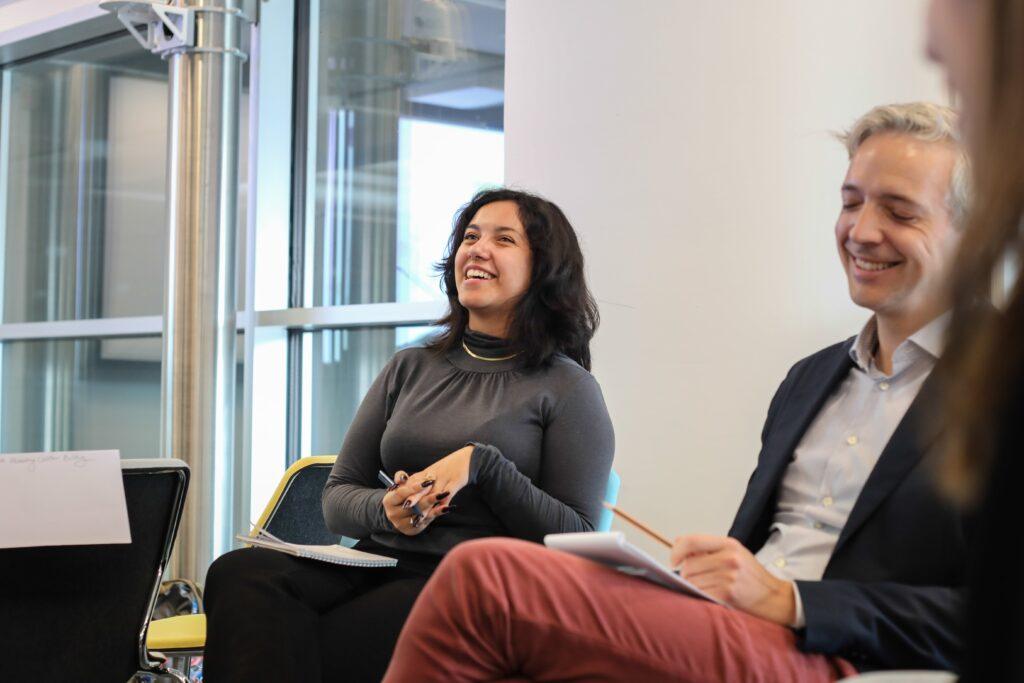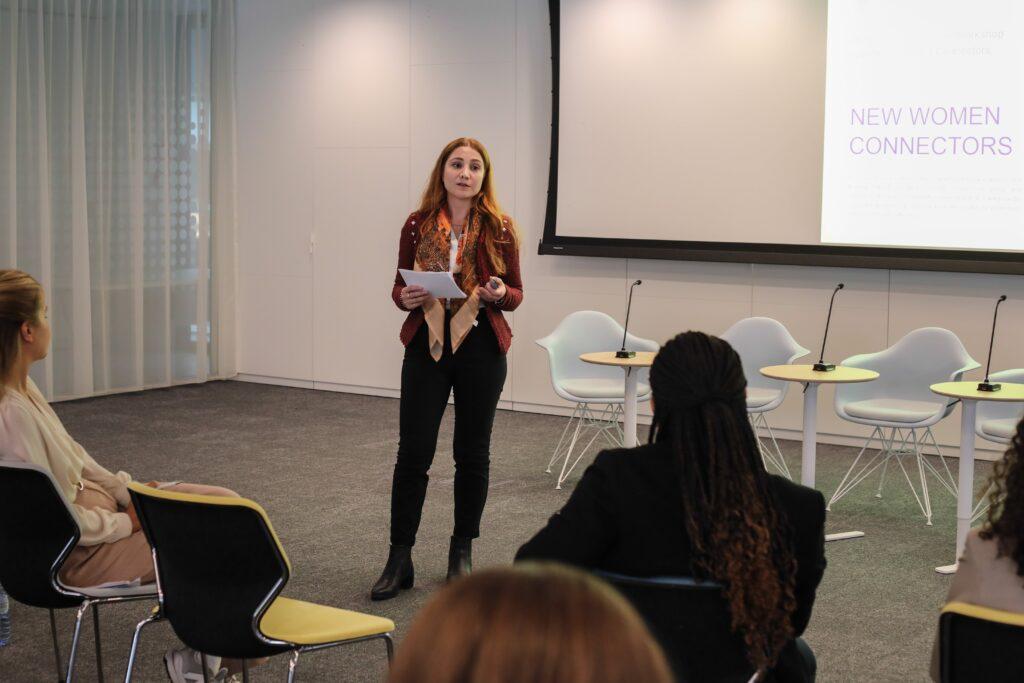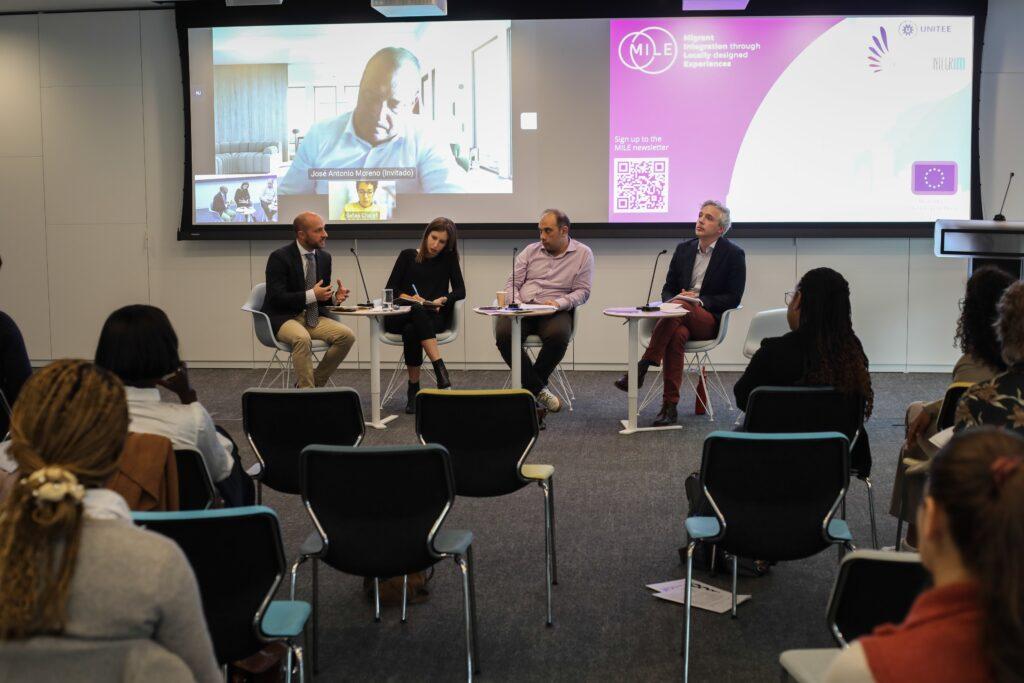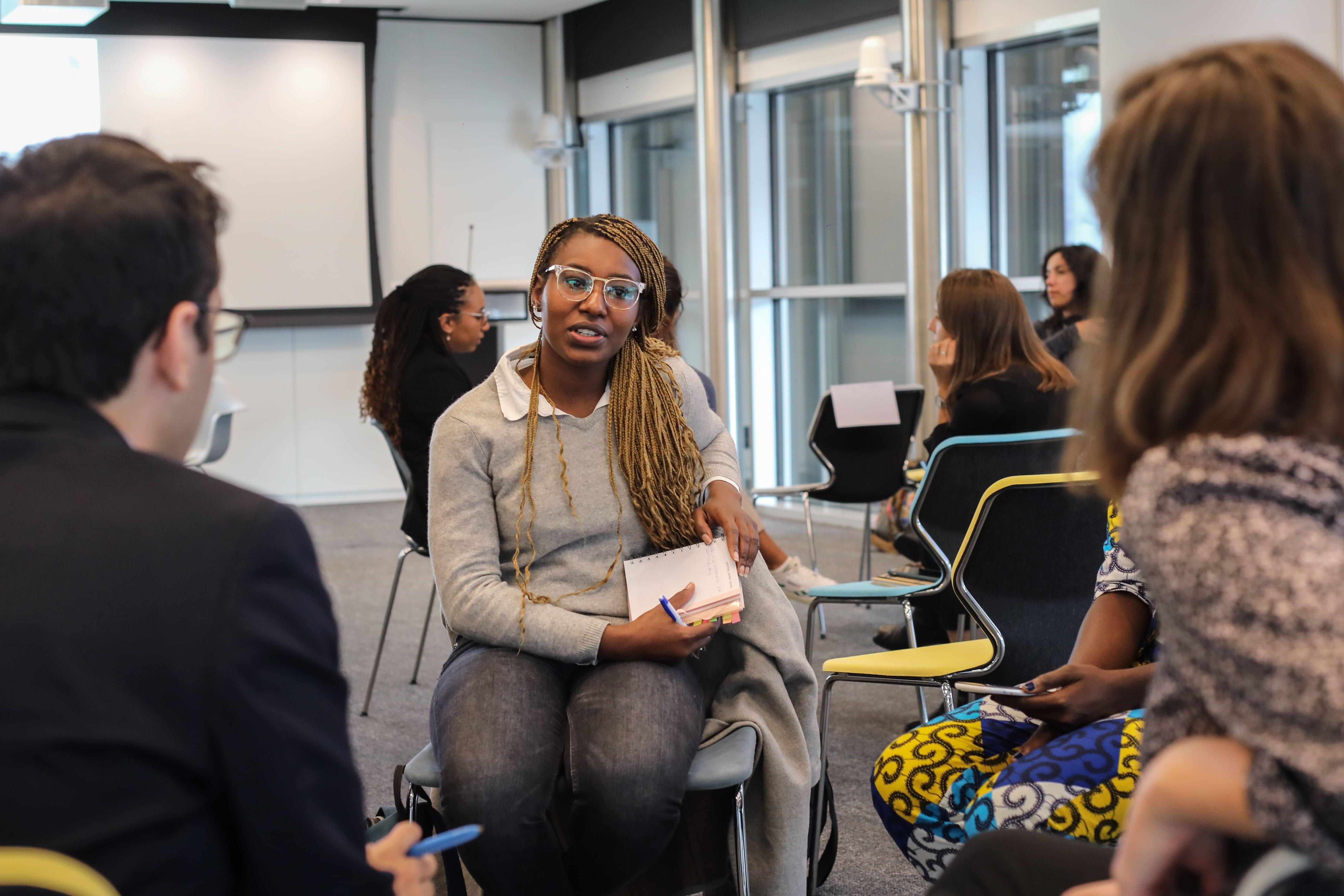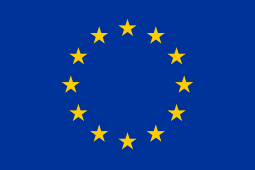Sign up here if you would like to receive updates and event invitations from the MILE project.
How can we make political participation more inclusive and accessible to everyone? MILE partners UNITEE, New Women Connectors, and INTEGRIM Lab held an event on 27 September 2023, in collaboration with the European Parliament, to explore this question with representatives of civil society, diaspora, migrant communities, researchers, and policymakers.
Speakers and participants shed light on the challenges faced by migrant communities and other marginalised and underrepresented groups when it comes to taking part in the democratic process and shared their learnings and experiences on how to achieve inclusive political engagement.
Here are some key takeaways from the event:
1. Recognise Barriers
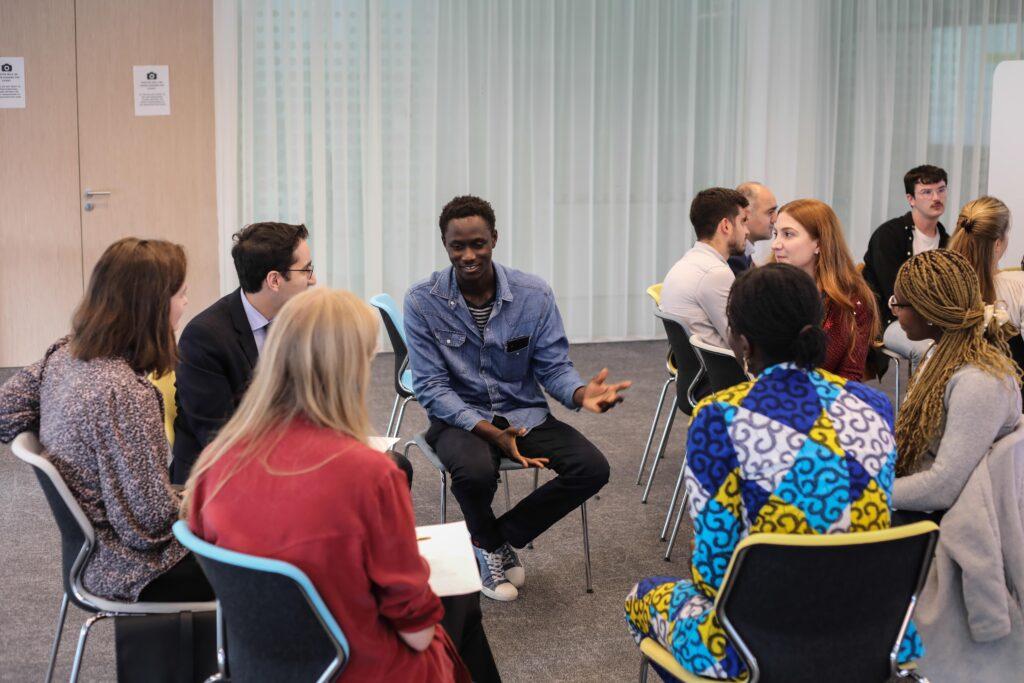
“I have never voted in my life and I am 30 years old”
Tamam Abusalama, ECRE
Identifying and acknowledging the barriers faced by those overlooked by democratic processes is the crucial first step in overcoming them. Tamam Abusalama from ECRE highlighted that migrants and refugees can face obstacles such as a lack of experience and trust in democratic processes due to their experiences in their country of origin, limited resources and time to engage in democratic processes, lack of targeted outreach programs, low access to social support, and language barriers.
The use of EU funds and the participation of non-EU citizens in programs and projects can be limited due to complicated bureaucratic obstacles, as pointed out during Integrim Lab’s session on how the EU can best support civil society and promote local democracy and migrant inclusion. Safaa Charafi, gender and urban planning expert, highlighted how cities themselves can be barriers to migrants, as they are not designed with their specific needs in mind.
And without representation, many feel as if politics and democracy are simply not for them as they do not see themselves reflected in leaders, politicians, and institutions. Chaka Welch, Anti-Racism Coordinator at #DiasporaVote, spoke of her experience of feeling like a stranger in her own country and of not seeing people like her in positions of power. Chaka insists nevertheless that politics is for everyone, even if it seems out of reach, even if you don’t see yourself represented in politicians and institutions.
Key Action: Listen to migrant communities to understand their needs; Redouble representation and targeted removal of barriers
2. Amplify Migrant Voices
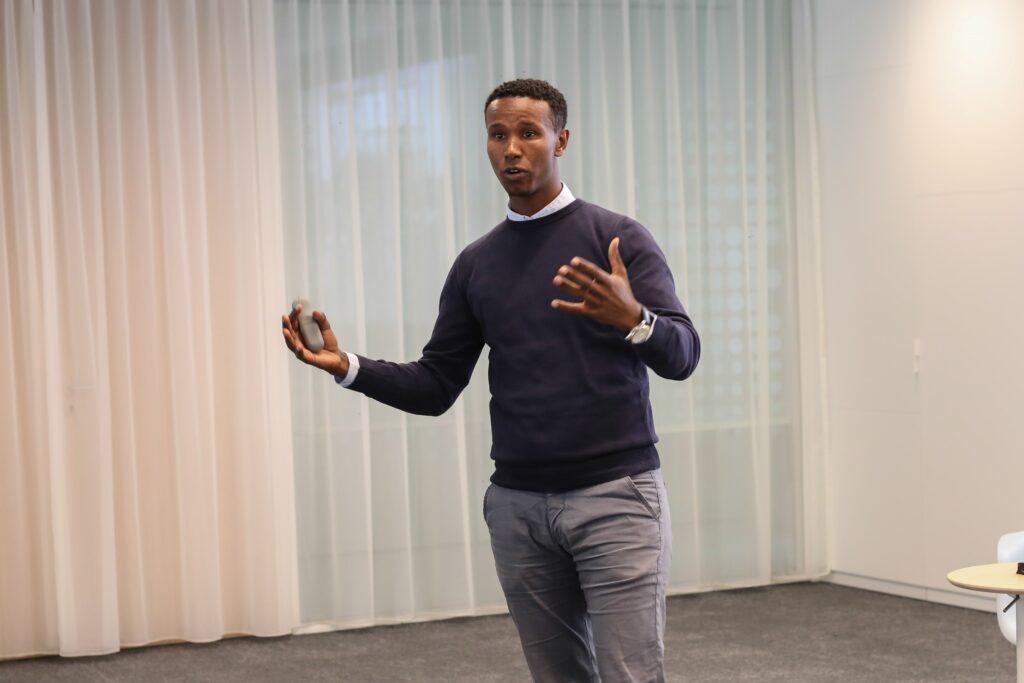
“Our lives are still decided by others without any involvement or participation from our side”
Dursa Mama Kadu, Voicify
Migrant and refugee voices are left out of decisions directly affecting their lives. They have little involvement in policies and oftentimes do not have the right to vote. Dursa Mama Kadu from Voicfy highlighted that many migrant-led organisations are not main applicants in funding proposals, and are not invited on to projects as meaningful and equitable partners.
Seyran Khalili from New Women Connectors called for greater integration of the lived experiences of migrants into policymaking. During an interactive session, Seyran asked participants what the future of inclusive participation in policy-making should look like. Main suggestions from participants and speakers centrered on sharing support, reducing competition between smaller organisations for funding opportunities, and the need for larger organisations to form equitable partnerships with smaller civil society organisations.
Key Action: Promote equitable and meaningful partnerships.
3. Work Together for Migrant Inclusion
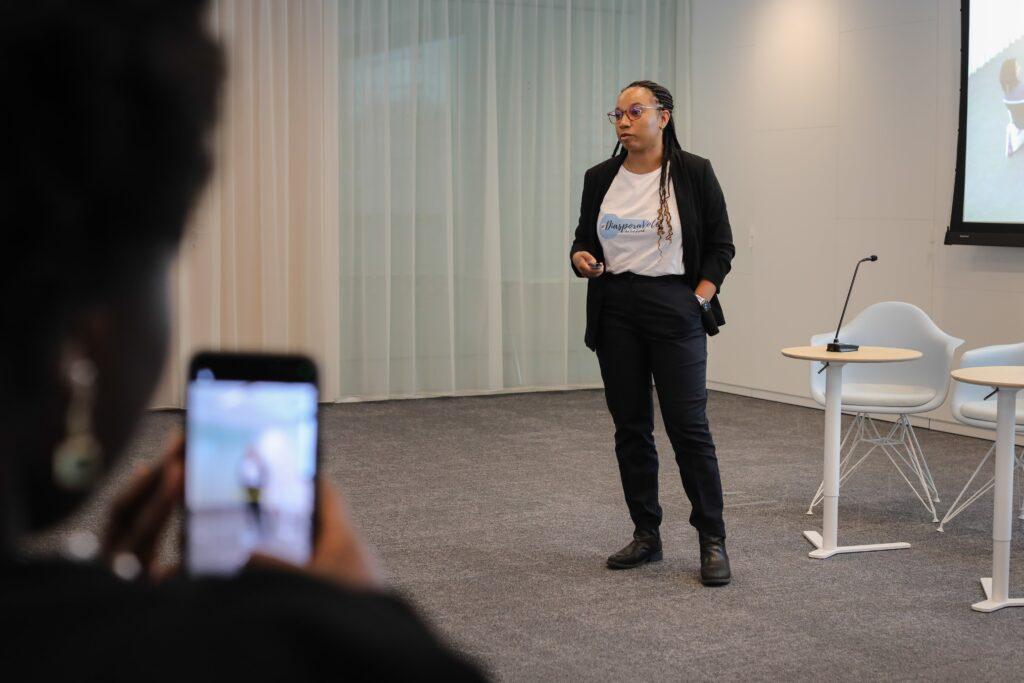
“I shouldn’t feel like a stranger in my own country”
Chaka Welch, #DiasporaVote
Over the course of the event, diverse perspectives and learnings were gathered from across a range of different organisations, speakers, and participants, from sharing personal stories to research projects, best practices, campaign ideas, experiences with common issues such as lack of access to funding and inclusion of lived experiences and migrant-led organisations in policies and solutions.
Ideas include the local level as a potential site for the voices of migrants in the participatory process, as it leads to a permanent dialogue with participants, better accountability and legitimacy, and citizens feel ownership over the process and develop greater trust with the institutions.
Vanessa Cotterell from UNITEE shared five key steps – Commitment, Co-creation, Innovation, Capacity Building, and Activism – to ensure greater migrant participation and inclusion at the local level, formed following the MILE project that facilitated a knowledge exchange of four local municipalities across the EU and their methods of migrants’ empowerment and active citizenship.
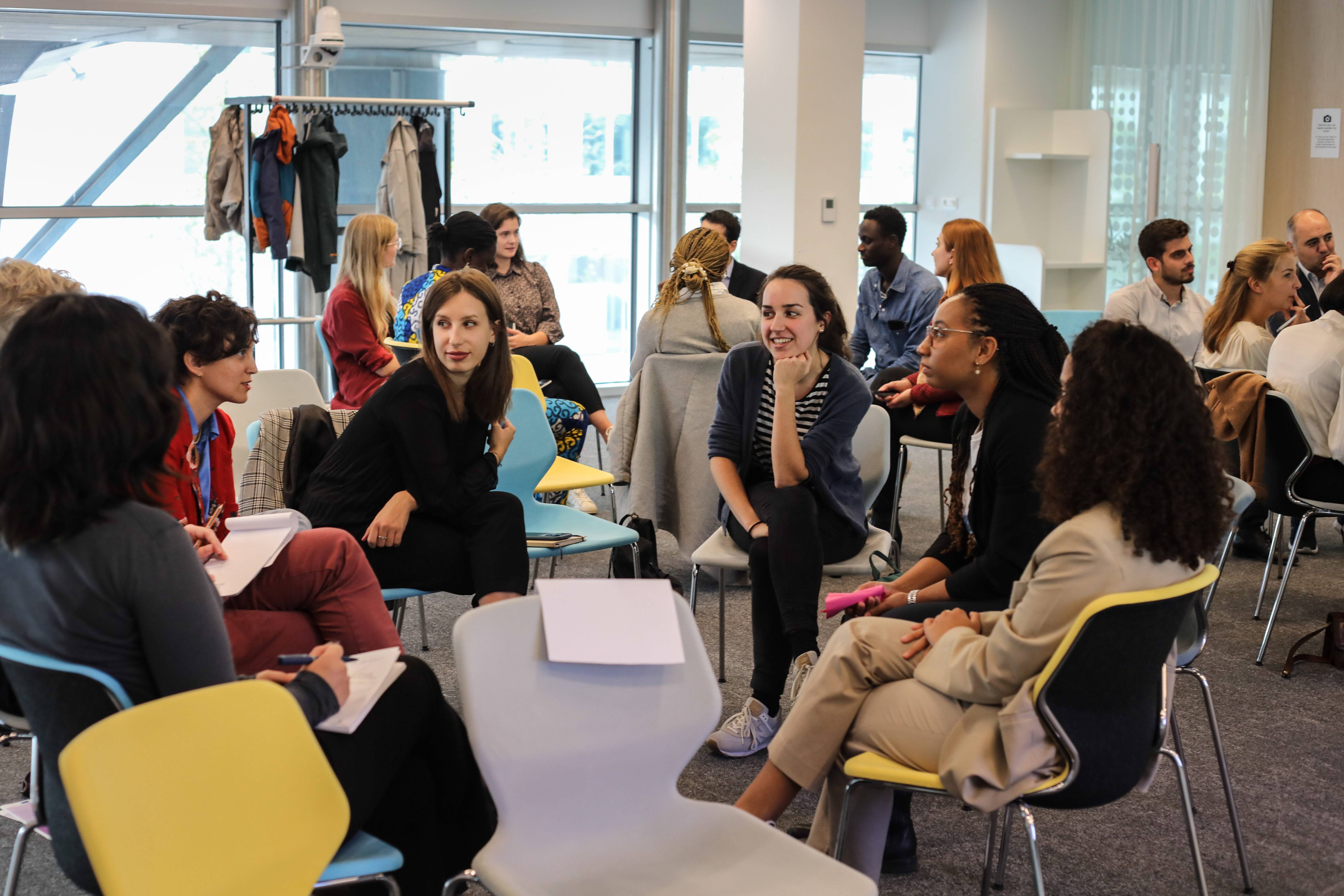
Key Action: Continue to form partnerships with likely and unlikely allies to share learnings and best practices.
During the course of the event, participants, speakers, and organisers shared their ideas on how we can make political participation more inclusive and accessible to everyone, from the need to amplify migrant voices, promote equitable partnerships between migrant-led organisations and bigger organisations, recognise and remove specific barriers to entry, and work collaboratively for migrant inclusion
Politics and policymaking should be for everyone. By working together towards these key actions and outcomes, we take a step forward towards making inclusive and accessible politics a reality for all.
All photo credits @ Umit Vurel.
